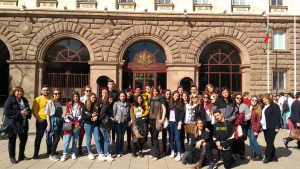
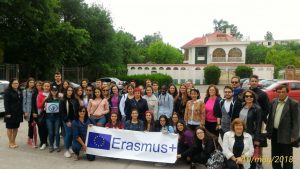
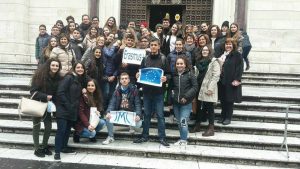

Logo of the project:
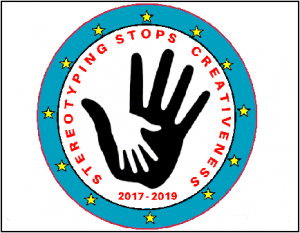
Partner countries: Bulgaria /coordinator/; Italy; Romania; Spain;Turkey
Short description of the project:
Context
The differences between us are essential to humanity. They are a circumstance of birth and should not become a source of conflict
or hatred. The latest events on the European social stage show us that we are still victims of some deeply rooted mentalities
according to which we evaluate human beings belonging to different cultural groups based on some ready-made appreciations
which have no connection with the reality. We are all unique and different from each other, but this is a reason for celebration rather
than conflict.
We believe that all people deserve respect, irrespective of skin colour, religious beliefs and practices, descendance or ideas. If people
understand that, we will be able to live in harmony, respect and acceptance.
The topic is a hot one in the context of today’s ever-increasing immigration numbers. Spain, Turkey and Italy, three of the partner
countries are making efforts to deal with this phenomenon through a variety of programmes, initiatives etc.
Romania and Bulgaria are the other countries which are also in the frame of the issue as the members of the European Union.
The reason why we chose to make this topic a priority for our schools and project is the fact that the sooner in life students become
aware of the problem of stereotyping and discrimination, the better the chances will be for the world to change and for people to
live in harmony with one another.
Objectives
We want to reach the following objectives:
– to combat hate speech and hate behaviour inside schools;
– to increase social awareness , tolerance, empathy for the immigrants and refugees
– to destroy stereotypes and raise awareness about the risks they cause
– to improve the know-how related to tackling the issues of stereotyping and discrimination inside schools
– to promote the active involvement of students in the social life on the topic of stereotyping and discrimination
– to strengthen the relationship between schools and local NGOs who are addressing the same issues
Participants
The project addresses a target group of 360 students of different specialisations in our school, boys and girls, who are 16-17 years
old. We believe that this is a critical age, when the risk is higher for them to develop long-lasting negative attitudes towards other
people based on stereotypical thinking and discrimination.
The project also addresses teachers in our schools, school counselors and psychologists who will turn the project results into longterm
practices at local levels.
Main activities
We have planned 4 student exchanges:
C1 – Stereotypical thinking and discrimination: common stereotypes related to nationalities; direct, indirect, multiple
discrimination; forms of discrimination and their effects – xenophobia, homophobia, transphobia.
C2 – Gender and racial equality: common gender and racial stereotypes and their effects; ways of combating them.
C3 – Religious equality: common stereotypes related to religions and religious beliefs; effects of such stereotypes; analysis
of cases in which stereotypes and discrimination against religions had terrible consequences
C4 – Stereotypical thinking and discrimination in schools – how can we address and solve these issues?
Methodology
The project will cover 5 main areas:
– Project management
1. Design and implementation of methodologies – selection of participants, communication, reporting
2. Financial management
3. Risk management
4. Monitoring and evaluation of activities and results
5. Organisation and attendance of Transnational meetings
– Selection and preparation of participants
– Organisation and participation in exchanges
– Elaboration of tangible results
– Dissemination
1. Creation of website and updates
2. Creation of e-twinning space
3. Design of materials – brochures, flyers, posters, banners, articles
4. Dissemination meetings
5. Elaboration of sustainability plan
Results and impact
The results we propose are at the level of the students:
– increased awareness of the democratic values of the EU, increased desire to participate actively in local campaigns against discrimination, better intercultural awareness, communication and dialogue; increased social awareness, tolerance, empathy for the immigrants and refugees; improved knowledge of the concepts of stereotyping and discrimination and the areas in which they can manifest, the dangers they bring about; improved English skills, data manipulation, critical thinking skills, improved team work abilities (developed in local activities and transnational exchanges)
Tangible results
– informative materials developed for the purpose of the exchanges, creative poems and prose by students on the topic of European diversity, role plays recorded on videos, posters on the topic of “NO HATE in schools”, “United as One under the European Sky”, photographs of students for the competition about cultural differences “I am not You but We can be together”, collection of interactive games and activities.
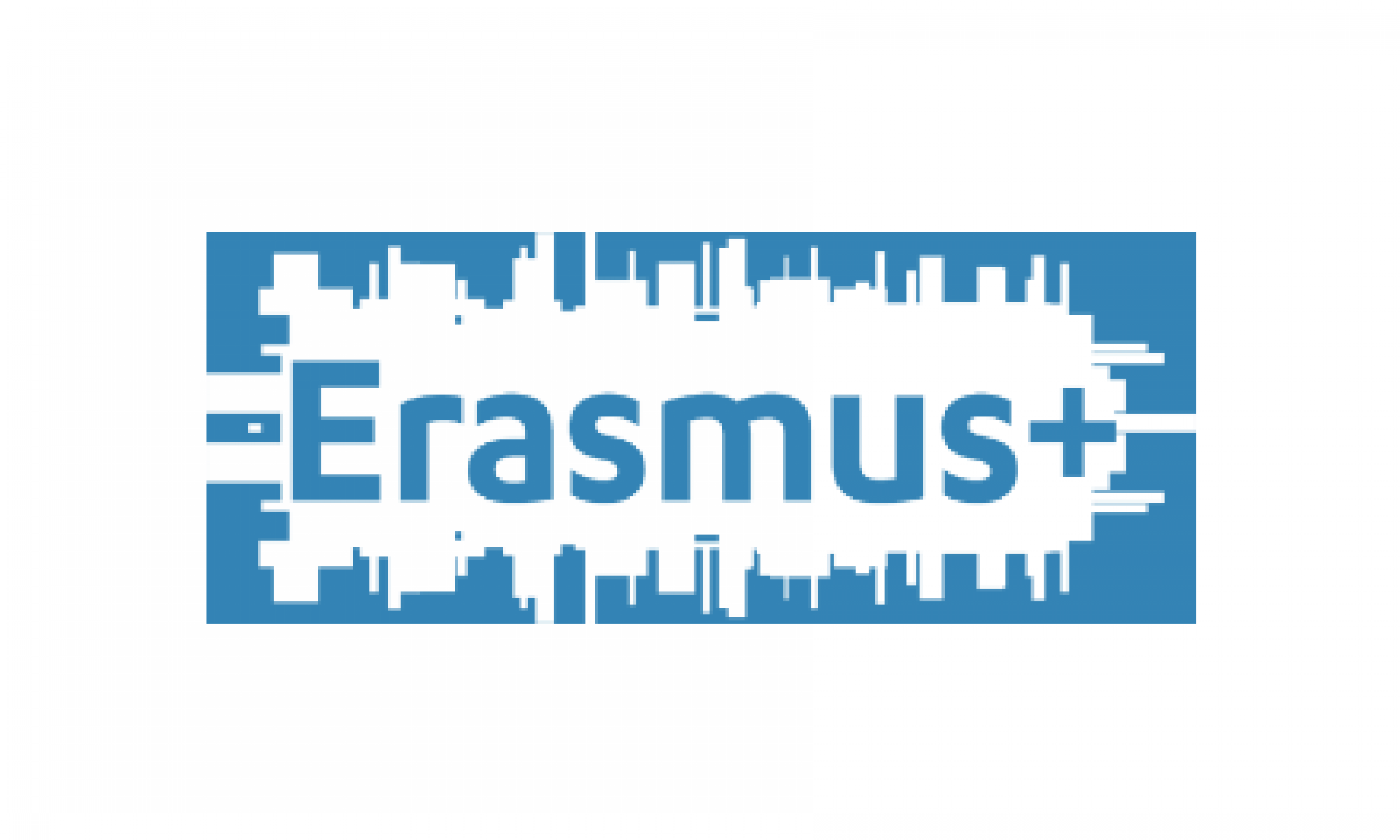

Привет, това е коментар.
Управлението, промените, редактирането и триенето на коментарите става в секция Коментари на таблото.
Аватарите на потребителите, които коментират, идват от Gravatar.